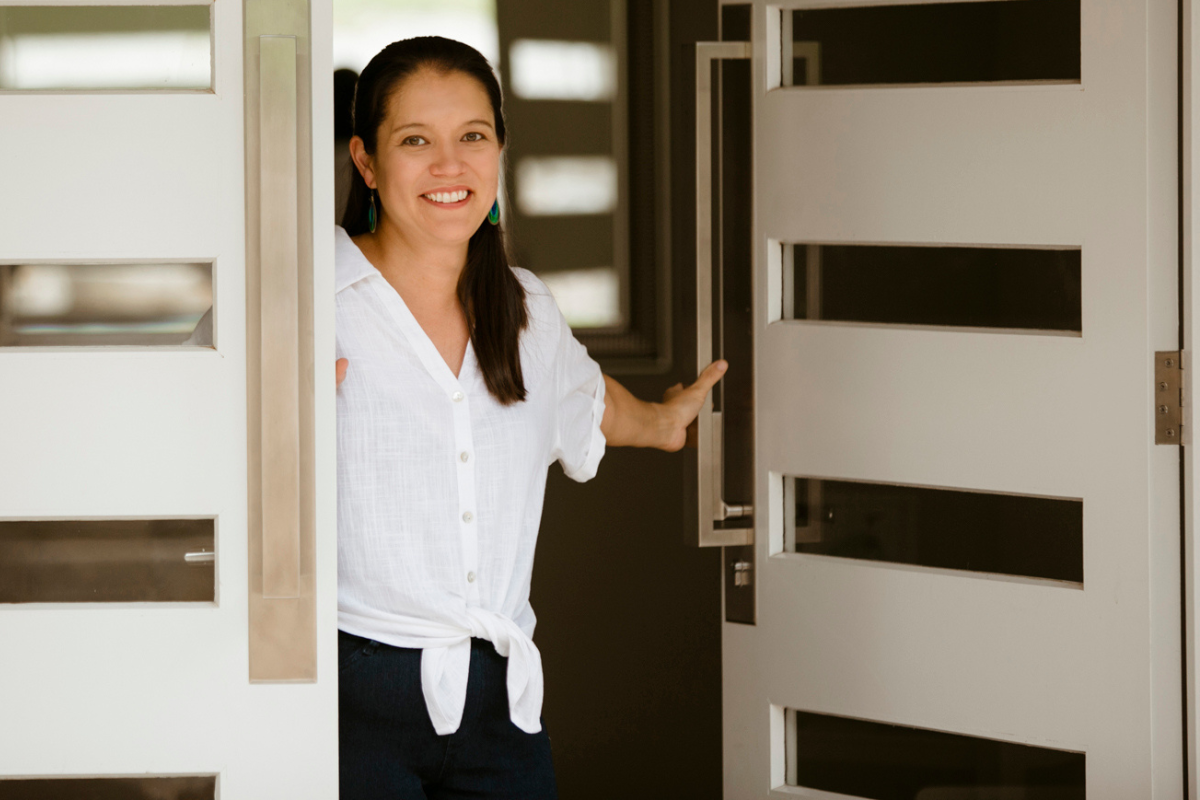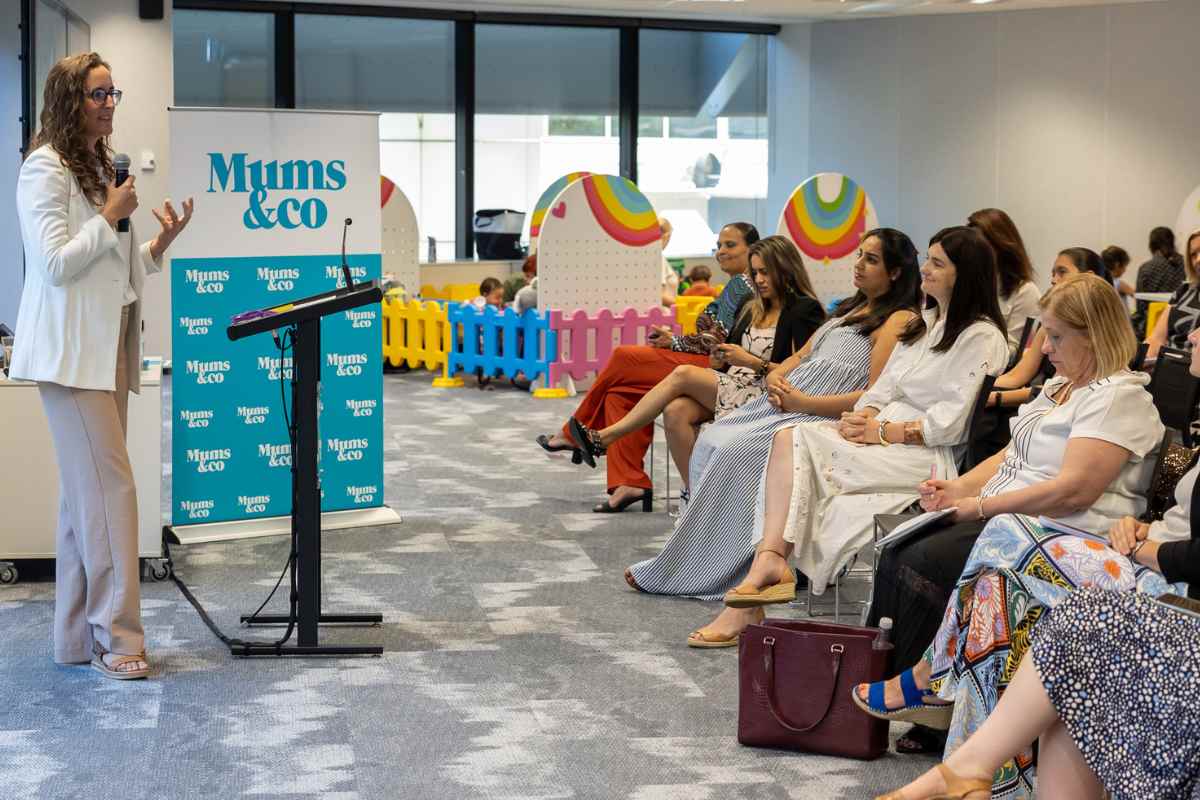Do you ever feel like you could be nearing a breakdown? Course correct yourself with Emily Rose Yates.
Emily, a naturopath, turned her burnout into a mission. Now, she supports women by sharing health knowledge, solutions, and ensuring their well-being radiates through families and communities.
We love sharing women's stories. Emily, we really wanted to invite you to share your story with our community today, and to give us a little bit of pitch about your business too.
What got me into naturopathy medicine is my spectacular burnout at the age of 21. A lot of doctors couldn't figure out what was going on with me. I had glandular fever, and then I developed chronic fatigue. I went to a naturopath, and she kind of brought me back to life. And so I had a nice mini crisis early on in life, that really course corrected me. And I do believe that breakdowns lead to break through. I then started my naturopathy practice and then had my children and I was kind of like, oh, what a win; I can work in and around my family and my family's needs and my children's needs, and I could apply all of my knowledge. I'm super motivated to be sharing messages with women and giving easy solutions in order to nurture up the vibrancy of their health, and the health of their family, and their children. I've been lucky enough to practice on my kids and get everyone as healthy as possible.
This wellness journey is a lifelong one. Has your personal journey with wellness changed with you as you've progressed into becoming a parent, and becoming a business owner? If so, how?
It has. I’m so grateful to do what I do because it's a constant reminder. I sit with patients all day going “how much rest are you doing?” and “How much sleep are you having?”. It's prioritising those pieces in and amongst the busyness. My famous quote is that imagine if you we're bedridden for six weeks. How is that going to go for family, for business, for all the things that we hold? We are a generation that, for lack of a better word or analogy, are the meat in the sandwich, we have little children and we have elderly parents, and so we're caring for everybody.
The reason why I specifically speak to mums is because if I help elevate the health of one mum, I've contacted whole community, because we're like the inside of a spider web, we're inside things like the school community, the elderly community, and the younger children community. We're everywhere.
When I see women that are kind of on the edge of burnout, I'm like, well, let's actually go there - I don't like to operate from fear. I operate from love. But it's a good kind of headspace to re prioritise our health as mums and our mental health and our rest practices, and our sleep. Nothing matters more than us if we're not vibrating at high frequency. We actually modulate that in the household. We modulate the microbiomes in the gut. So our health is actually the epicentre of every family and community that we touch. If we get taken out those communities fall down. So it's a really great kind of reframe because you realise, “wow, yeah, I am so important.”
So often I think as mums, our health can become very background, and we put up with little niggly things that go on and on. And if we ignore that for long enough, it develops. This is why me and my team do a lot of preventative health. So, I suggest 6 to 12 monthly blood screens. We analyse them, we get people in before you've fallen in a heap. I want to look at more of a preventative lens. There's certain kind of changes in the life cycle where it's even more important. For example with pregnancy, we're giving out endless nutrients. The World Health Organization says we need 3 to 4 years to replace the nutrients from feeding our baby. Then you consider those who have consecutive children, we give out nutrients to them again. We're not only giving of our time and our energy, and our care and our mental load, and we're giving out nutrients. A lot of people go into a lot of postnatal depletion, which causes a lot of postnatal anxiety, depression, which are all nutrient based. Sometimes mental health is needed. If we don't have that base level, which I call petrol in the tank, good nutrients, it’s very difficult, and we feel tired. You can feel things like brain fog, become bloated, or your periods are irregular. I’m passionate about prevention.
Could you describe the shape of a good life for you?
I walked a really painful journey losing my mum three years ago. She passed away from motor neurone disease, and I was caring for her for a really long time, which that self-care message really got driven in because I'm seeing, “if mum can't survive, the kids can't survive.” I really needed to take some time out for myself. I can find that the reasons to do that now, even more so than ever, but I was dancing around self-care a little bit.
Then I realised, I really need to take care of myself. What it's helped me to do, is it's bolted me back into my spiritual practices. Staying really cantered with oneself. And I find that a lot of women lose themselves. We rebuild as we birth, and have babies, but I see it's gone on for too long and they are giving out to everybody else, and there's no strong sense of self. In terms of what keeps me peaceful and the household peaceful, I believe that the nervous system of mum is what modulates the household. Everyone starts to pick up on that. I keep myself modulated, connecting, and meditating. I connect with who I am, what I'm here to do, keep my connection with my soul and spiritually, is what harmonises our home.
-1.png)

.png)
.png)

.png)






